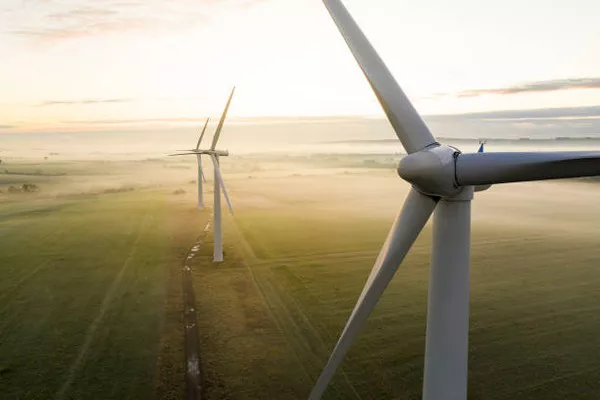The quest for sustainable energy sources continues to drive innovation in the renewable energy sector. Addressing environmental concerns associated with wind turbine blade disposal, a German turbine blade manufacturer, Voodin Blade Technology, has introduced a pioneering solution with biodegradable wooden blades. These laminated blades not only reduce carbon dioxide emissions but also cut production costs, marking a significant stride towards sustainable wind energy.
The Challenge of Wind Turbine Blade Recycling
While wind energy is lauded for its eco-friendliness in electricity generation, the end-of-life impact of wind turbine blades presents a significant environmental challenge. Traditional blades, composed of fiberglass, pose recycling hurdles due to their non-biodegradable nature and complex composition. Recycling composites like fiberglass requires intricate separation processes, making disposal predominantly landfill-bound or through incineration.
The Scale of the Issue
The scale of wind turbine blade disposal is escalating, with projections indicating a staggering 1.5 million metric tons of decommissioned blades in the U.S. by 2040. As these blades have a typical lifespan of 20 to 25 years, the urgency for sustainable solutions grows with each passing year.
Introducing Wooden Wind Turbine Blades
Voodin Blade Technology’s innovative approach involves the utilization of laminated veneer lumber (LVL) for wind turbine blades. These wooden blades, installed in Breuna, Germany, offer a compelling alternative to traditional fiberglass blades. Not only do they exhibit a remarkable reduction in carbon dioxide emissions of up to 78%, but they also boast a 20% decrease in production costs.
The Benefits of Laminated Veneer Lumber
LVL, a durable engineered wood product, facilitates better recycling of decommissioned blades compared to traditional materials. Furthermore, the manufacturing process of wooden blades enhances automation, thereby reducing labor demand and enabling production closer to wind farms. This localization minimizes transportation costs and emissions, contributing to the overall sustainability of wind energy production.
Technological Advancements for Sustainability
Voodin Blade Technology leverages CNC milling machines for intricate 3D shaping without the need for molds, enhancing automation and flexibility in manufacturing. Extensive laboratory testing has demonstrated the durability of wooden blades in onshore wind conditions, surpassing the resilience of fiberglass alternatives.
Charting the Future
With successful laboratory testing under its belt, Voodin Blade Technology is advancing towards larger prototypes, including 60-meter and 80-meter blades. This progressive approach underscores the company’s commitment to leading the charge in sustainable wind energy solutions, paving the way for a greener and more resilient future in renewable energy production.

